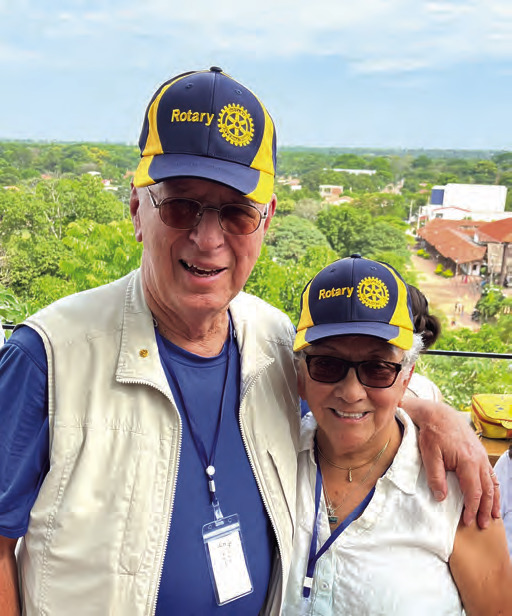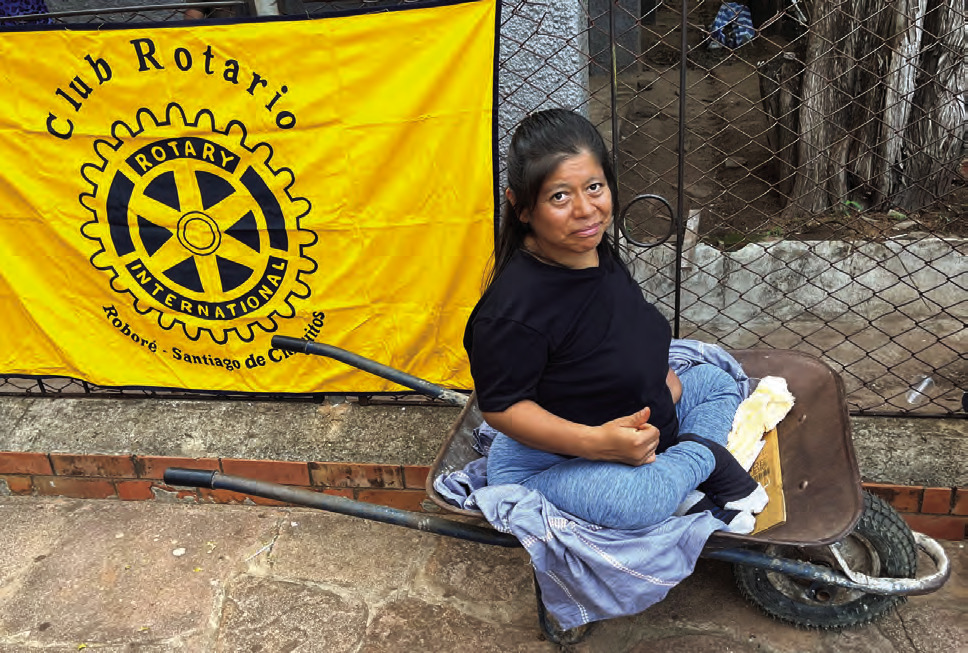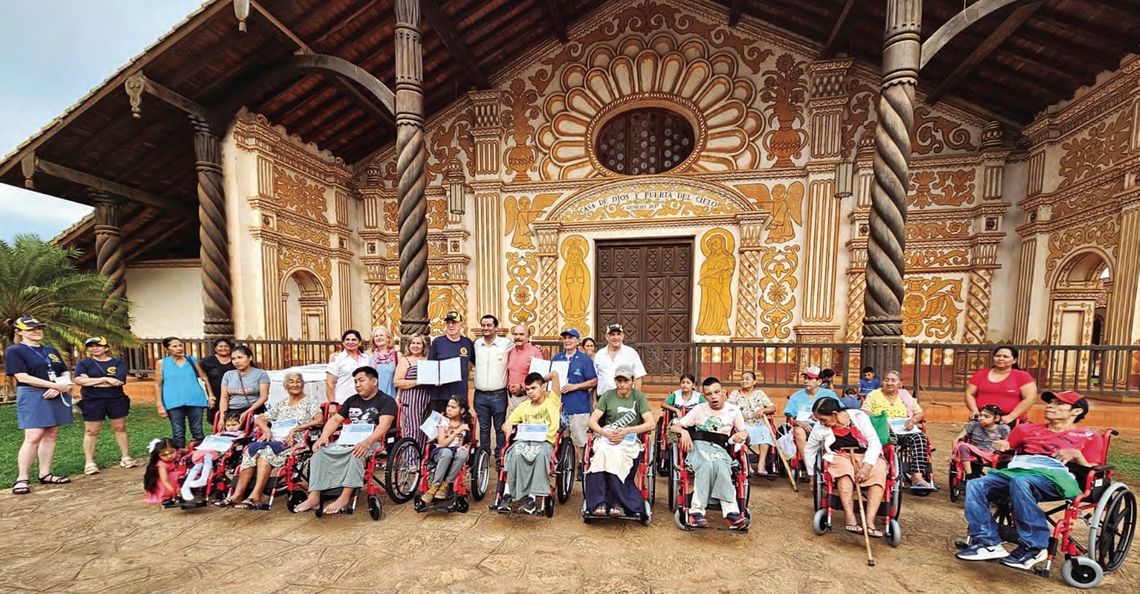Local Rotarians Help Deliver Wheelchairs To Bolivia
Editor’s note: As we have reported in stories from past years, Lexington residents and Rotarians Woody and Lori Sadler have long been involved in bringing wheelchairs to Latin America countries. Woody has given us the following first-hand account of their latest trip.
This Thanksgiving, which has always been my favorite holiday, will mean a little bit more to me this year.
Lori and I have just returned from a trip to Bolivia to deliver 260 wheelchairs through our Rotary District program. Over the past 10 years we have given out almost 4,000 wheelchairs in Latin America.
After returning from each wheelchair distribution, I have a greater appreciation for our country and the system of government we live under. We have been able to take care of our own through government social programs and the generosity of our fellow citizens. While it is not perfect, we have safety nets to help catch those who have fallen into need.
In Bolivia, the government has been ineffective in providing support for the basic needs of its people. Philanthropic organizations are few.
One Rotarian told me, “We are out of fuel and out of money,” as we passed lines of trucks waiting at service stations for diesel. Because of government regulating the price and heavily subsidizing the cost of diesel, truckers wait two to three days to get fuel.
However, Rotary stands out as a beacon of hope in Bolivia. Unlike in the USA where anyone can join Rotary, Rotarians in other countries have to pay as much as $10,000 just to join a club.
This, of course, means Rotarians are part of the wealthy class in most countries. I take my hat off to them. What makes them unique is that they could stand by, and watch others suffer. Instead, they use their money, time and talents to improve the quality of life for their countrymen.
We traveled with our Rotary hosts hundreds of miles on back dirt roads to deliver wheelchairs to isolated villages. These Rotarians spent many hours setting up the distributions, staging the wheelchairs, and ensuring those who need the chairs receive them.
Another project of theirs was building and equipping a burn center for children. Theirs is the only children’s burn center in the country; unfortunately, because of finances, they can only open the center four times a year, when they have surgical teams come in from Germany. Rotarians from our group are planning to help secure the special fabric required for clothing to treat the children’s burns.
These Rotarians are the ones who accompanied us around the Amazon basin in southeast Bolivia. The land is arid and as flat as our Great Plains. Land that is capable of supporting crops is farmed. Production is hampered by the government’s ban on using genetically modified seeds. This has dramatically reduced the yield compared to neighboring Paraguay. The rest of the open land is used for cattle production.
There are “islands” of jungle scattered throughout the area, where wildlife abounds. Many birds inhabit the area, including toucans. Jaguars, crocodiles and other wildlife can be found in the islands. Villages are very rare, with little infrastructure. Electricity has come in the past few decades, but the roads are mostly dirt and clean drinking water is nonexistent.
While there are many problems, human mobility was the reason for our visit. Our team consisted of 17 members from Virginia, Tennessee and North Carolina. The object of the visit was first to deliver wheelchairs, second to help our Rotarians understand the culture and history of Bolivia, and third to interact with fellow Rotarians from Bolivia, thus, to better understand their way of life and help them understand more about our American culture.
Most of our distributions were at the health clinic in a town, soup kitchens, or Catholic churches. The nearest hospital was in Santa Cruz, over 100 miles away.
The need for wheelchairs in most of Latin America comes from the lack of prenatal care in children, pesticides spread years ago, and diabetes. Amputations from diabetes and motorcycle accidents are common. After a full life of living in these conditions, the elderly need help with their mobility.
The Wheelchair Foundation states that there is a need for 100 million wheelchairs in the world and for every person who gets a wheelchair, there are on average six caregivers


THIS POLIO survivor was brought to the distribution assembly in Santiago de Christosiquitos, Bolivia, in a wheelbarrow. She has never had a wheelchair, and lacked mobility her whole life. She was thankful to receive a wheelchair, reported Woody Sadler.
.jpg)


